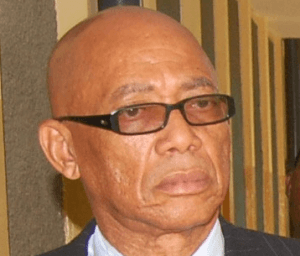CHRAJ is still relevant – Justice Short

Justice Emile Francis Short, a Human Rights Consultant, has re-affirmed the important role of the Commission for Human Rights and Administrative Justice (CHRAJ) in national affairs, saying the Commission was still relevant.
He said the Commission has over the years increased education on fundamental human rights, investigated anti-corruption issues and provided legal aid for citizens who were unable to assess the services of a lawyer.
Justice Short made the remarks at a lecture in Accra on the topic “Giving with the right and taking with the left; The Supervisory Jurisdiction of the High Court and the Supreme Court over the CHRAJ”.
He noted that CHRAJ and the Judiciary played a complementary role as far as their mandates were concerned and that the judicial review was the power given by the law of the court to ensure that lower adjudicating bodies Acts within the confines of their functions.
Justice Short said Parliament in accordance with the provisions of the Fourth Republican Constitution in October 1993 enacted the Commission on Human Rights and Administrative Justice Act (Act 456), to establish the Commission.
He explained that the Commission sought to foster a culture of respect for fundamental human rights and freedoms, as well as administrative justice and fairness in the country, exist to promote integrity and decency by investigating corruption and educating the public about its high costs and, conversely, the significant pay-offs of a relatively corrupt free society.
Justice Short said Section 7(10) of the Commission’s Act 456 spells out the Commission’s duties of investigating complaints of violations of fundamental rights and freedoms, injustice, corruption, abuse of power and unfair treatment of any person by public officer in the exercise of his official duties.
The Commission also investigate complaints concerning the functioning of the Public Services Commission, the Administrative Organs of the State, the Armed Forces, the Police Service in so far as complaints relate to the failure to achieve a balanced structuring of those services or equal access by all to the recruitment of those services or fair administration in relation to those services.
He explained that CHRAJ was not a court and therefore its decisions were not binding and that the Commission was subject to judicial review by the High Court and Supreme Court.
“CHRAJ is not above the law and just as we hold officers and institutions accountable, so also CHRAJ should be held accountable if its act in a manner outside its functions or breach the rules of natural justice,” he added.
Mr Richard Quayson, acting Commissioner of CHRAJ, said the Commission was coordinating the implementation of the national anti-corruption action plan through its monitoring, evaluation and reporting strategies to ensure that institutions take steps to clamp down corruption.
He said the Commission has made strides in the area of human right protection and handling of issues of sexual harassment since it affected women negatively and the prevention of violation of human rights including the widowhood rites, female genital mutilation, and witches camp issues.
He said the Commission had been instrumental in ensuring administrative fairness and justice across the country and expressed concerns about some public officers who performed unknown services that extorted money from the public.
Mr Quayson urged public institutions to establish client service charges to ensure that every services rendered by any public institution was transparent as well as ensured accountability in the system.
Source: GNA
